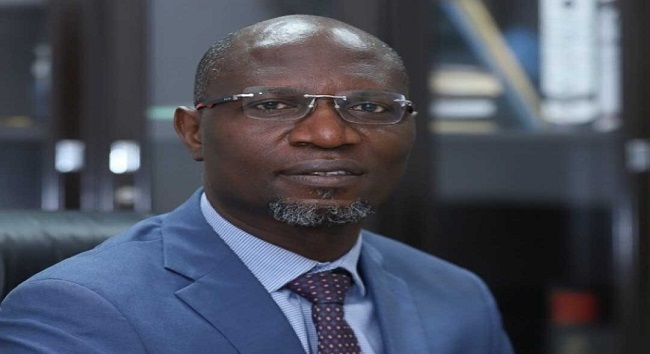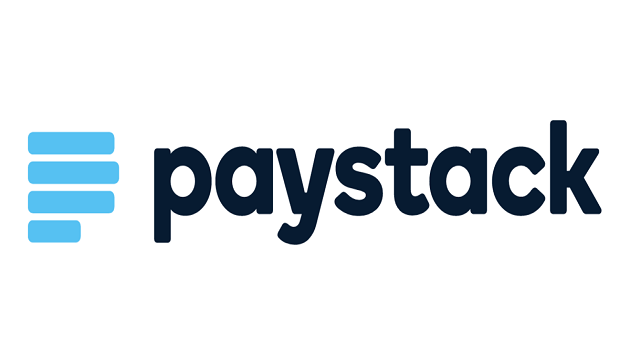E-Financial
AfDB, NDF, Others Partner in $55million Investment into Off-Grid Energy Access Fund

The African Development Bank’s Board approved a US $30-million investment in the Facility for Energy Inclusion Off-Grid Energy Access Fund (“FEI OGEF”). This follows the approval of additional investments of US $10 million from Calvert Impact Capital (CIC), US $8.5 million from the Global Environment Facility (GEF) and €6 million from the Nordic Development Fund (NDF). In addition, the NDF will provide a €0.5-million grant for technical assistance to support deal structuring and capacity development.
FEI OGEF is a US $100-million blended finance debt fund designed to provide loans in local and hard currencies to off-grid energy companies with the dual objectives of scaling up access to clean electricity for off-grid households and crowding in local financial institutions as co-lenders. The Fund directly supports the Bank’s New Deal on Energy for Africa and is part of its “High 5” priority to light up and power the continent, with an aspirational target of connecting 75 million households through off-grid energy access solutions by 2025. Through the use of clean energy instead of fossil fuels to power communities, the Fund is expected to result in the reduction of up to 8 million tonnes of CO2 emissions over its lifetime.
Over 600 million people are estimated to lack access to modern energy in Sub-Saharan Africa.
“FEI OGEF is the first Bank instrument that enables debt financing, including in local currency, to off-grid energy access companies who need growth capital to expand their operations across Africa. The strong collaboration of the Bank, SEFA and NDF in preparing and creating this fund, and the co-investment by the GEF and CIC, demonstrate the power of partnerships for clean energy access in Africa,” said Astrid Manroth, Director, Transformative Energy Partnerships at the African Development Bank.
The combination of these four first investments brings this innovative fund closer to its first close target to be achieved in the first quarter of 2018 and provides a strong signal to the community of interested investors. In particular, the approvals will provide comfort for dedicated private-sector investors to join FEI OGEF.
The Fund is a first mover matching local currency debt instruments with recent innovations in off-grid energy business models to scale up energy access for underserved and rural households. It provides a blended capital structure whereby investments in equity provides comfort and risk cushioning to attract early participation and additional investment by development finance institutions and other commercial investors.
During a recent visit to the Bank headquarters in Abidjan, NDF’s Managing Director Pasi Hellman said, “This initiative highlights the close and constructive working relationship between NDF and the AfDB. We have been in lock step throughout the preparation and development cycle of the Fund. Now we have a fully packaged investment vehicle to bring to market scaling up proven clean off-grid energy solutions to the energy access challenge on the continent.”
The Fund will be managed by Lion’s Head Global Partners operating out of offices in Nairobi, Lagos and London, with an initial focus on East Africa as well as Côte d’Ivoire, Ghana and Nigeria, and looking to build a strong pipeline of transactions throughout the region. The pioneering Fund will unlock and catalyse financial sector and local currency participation in this growing green finance opportunity.
“The GEF is pleased to be a partner in this innovative blended finance facility which is part of GEF’s strategic priority to “crowd-in” private sector investment to help countries meet their environmental and sustainability goals,” said Gustavo Fonseca, Director of Programs at the Global Environment Facility.
“OGEF squarely fits within our investment mandate of leveraging public capital at scale to create systemic change in sectors and geographies that have been overlooked by mainstream capital markets. We are excited to work with the AfDB and the other investors to scale this facility and increase access to clean electricity for off-grid households in Africa,” said Jenn Pryce, President and CEO of Calvert Impact Capital.
The Facility for Energy Inclusion (FEI) is the Bank’s flagship initiative for providing long-term finance to small-scale renewable energy access projects, of which FEI OGEF is one of the financing windows. FEI has been developed with grant support from the Bank-hosted Sustainable Energy Fund for Africa (SEFA).
E-Financial
SEC Hikes Minimum Capital Requirements for Market Operators After a Decade

The Securities and Exchange Commission (SEC) has revised the minimum capital applicable to all categories of regulated capital market entities after 10 years.

The minimum capital review, according to the SEC, is informed by the need to strengthen market resilience, enhance investor protection, align capital adequacy with the evolving risk profile of market activities, and ensure that regulated entities possess sufficient financial capacity to discharge their obligations in a sustainable manner.
“The revised Minimum Capital framework seeks to: enhance the financial soundness and operational resilience of market operators; align capital requirements with the scope, complexity, and risk exposure of regulated activities; promote market stability and systemic risk mitigation; and support innovation and orderly development of new market segments, including digital assets and commodities markets,” SEC said in a January 16 circular to market operators.
The SEC circular was sent to all entities regulated by the Commission, including but not limited to core and non-core capital market operators; market infrastructure institutions; capital market consultants; financial technology (FinTech) operators; Virtual Asset Service Providers (VASPs); and Commodity market intermediaries.
All affected entities are required to comply with the revised Minimum Capital Requirements on or before June 30, 2027, the circular said.
“Entities that fail to meet the prescribed requirements within the stipulated timeline shall be subject to appropriate regulatory sanctions, including suspension or withdrawal of registration, as may be determined by the Commission,” SEC said.
Tier-1 Portfolio Managers (Full Scope) involved in the management of Collective Investment Schemes (CIS) and Alternative Investment Funds (Private Equity, Venture Capital, Infrastructure Funds etc) above N20 billion Net Asset Value (NAV), or discretionary and Non-Discretionary Private Portfolio Management Services above N20 billion Assets under Management (AuM), or exposure to foreign instruments up to 40 percent of the NAV are now required to have a minimum capital of N5 billion as against N150 million.
“Any Fund and Portfolio Manager with NAV/AuM of more than N100billion should have a minimum of 10 percent of the NAV/AuM as capital,” SEC added.
For the Tier-2 fund/portfolio managers (Limited Scope) who are in the business of management of Collective Investment Schemes with limited pooled fund creation of not more than 10 times the required capital (N20 billion) on Net Asset Value (NAV), or discretionary and non-discretionary private portfolio management services of not more than N20 billion, or those exposure to foreign instruments of not more than 20 percent of the NAV, now require N2 billion as minimum capital as against low of N150 million.
Likewise, broker-dealers whose services include: client execution, proprietary trading, margin/securities lending and advisory services no longer require N300 million minimum capital to operate but N2 billion.
The SEC said the minimum capital review from 2015 low is in line with its mandate under the Investments and Securities Act 2025 to regulate and develop the Nigerian capital market.
Also, Tier 1 issuing houses who do non-interest finance services, advisory & arrangement services but no underwriting now require N2 billion as against N200 million; while Tier 2 –issuing houses with underwriting and offers a ‘one-stop-shop’ for issuers, provides underwriting services, and renders advisory and product development services require N7 billion minimum capital for this business as against N200 million.
Also, the minimum capital requirement for brokers (client execution only) has been jacked up from N200 million to N600 million, while that of dealers (proprietary trading only) has been moved from N100 million to N1 billion.
Broker-Dealers’ (client execution, proprietary trading, margin/securities lending and advisory services) has been raised from N300 million to N2 billion, while Sub-Brokers’ (Digital) from N10million to N100million; Sub-Broker (Corporate) has been increased from N10million to N50 million. Also, sub-brokers’ (Individual) now need N10 million minimum capital for the business as against N2 million while inter-dealer brokers require N2 billion as against N50 million.
E-Financial
SEC Partners Police in Nationwide Crackdown on Ponzi Schemes, Crypto Frauds

Securities and Exchange Commission (SEC) and the Nigeria Police Force have forged an alliance against illegal scheme operators, investment frauds, and cryptocurrency frauds in a bid to protect the hard-earned savings and the financial dreams of the Nigerian people.

Dr Emomotimi Agama, director-general of the SEC, stated this during a meeting with Kayode Egbetokun, Inspector General of Police, held in Abuja.
Agama said the SEC, as the sentinel at the gate of Nigeria’s formal capital markets, had the mandate to protect investors, maintain fair, efficient, and transparent markets, and promote the growth of a vibrant economy built on trust, which is done by setting rules, licensing operators and market surveillance.
He, however, stated that the Commission faced adversaries who operate in the shadows, outside regulated gates by exploiting the trust of people and promising miraculous returns such as 200 per cent in 30 days.
“Currently, there is a gap, a seam between identification and enforcement that these scammers exploit. Today, we aim to close that gap permanently. Therefore, we propose a robust, institutionalised collaboration with the following pillars: Joint Intelligence and Operations Task Force: Capacity Building and Knowledge Transfer; Streamlined Processes for Enforcement and National Public Awareness Campaign,” he stated.
The SEC DG advocated, “the establishment of a dedicated SEC-NPF team that combines market intelligence, forensic accounting, and understanding of complex financial schemes with investigative and intelligence-gathering capabilities. This team will be the rapid-response unit to new frauds.”
Agama also sought the permission of the IGP to go into a Memorandum of Understanding with the Cyber Security Unit of the Police Force in a bid to ensure that cyberspace is safe for all Nigerians
In his response, the IGP Kayode Egbetokun assured the SEC team that the Nigerian police Force is ready to collaborate with the Commission, strengthen partnership in all the ways possible, and ensure that the Commission achieves its aims.
He said, “Your role in the Securities and Exchange Commission is very crucial to the Nigerian Economy, and with our supervision and support from the government, we will ensure economic recovery and growth. If the police unit in SEC is strengthened, it is going to make such an impact on your enforcement drive. What you said speaks so much to your determination to ensure effective drive in the Capital market, and when we can achieve effective enforcement, it comes with so many benefits.
Egbetokun also congratulated the Commission on the recent achievement of the N100 trillion market capitalisation mark, adding that it will aid economic growth and development.
E-Financial
Paystack Expands Beyond Payments into Banking

Nigerian fintech giant, Paystack has taken its boldest step yet beyond payments, acquiring Ladder Microfinance Bank. The fintech giant has quickly rebranded its new acquisition as Paystack Microfinance Bank (MFB) in a strategic shift that could reshape how African businesses access credit, deposits, and embedded financial services.

After nearly a decade building the backbone of online payments in Nigeria, the deal gives Paystack regulatory cover to hold deposits, lend directly to businesses and offer banking-as-a-service products.
More importantly, Paystack’s chief operating officer, Amandine Lobelle, highlighted that it allows the company to exert greater control over the trillions of naira that already flow through its platform every month, turning transaction data into a powerful engine for credit and treasury products.
“After 10 years of building payment infrastructure and going deep, we realised that businesses needed more than just getting paid to grow. We wanted to leverage the expertise that we have built over the last decade to continue to address some of the pain points that businesses have,” said Lobelle.
Paystack MFB will operate as a sister company to its payments business, initially focusing on working capital loans, merchant cash advances, overdrafts and term loans for small and medium-sized enterprises.
By using real-time payment data to underwrite loans, Paystack believes it can offer faster approvals and more accurate risk pricing than traditional lenders, directly tackling Nigeria’s estimated $32 billion small business financing gap.
For Paystack, founded in 2016 and acquired by Stripe in 2020, the move marks a strategic evolution from being just a payments processor to becoming a core part of the financial operating system for African businesses.
Today, Paystack supports more than 300,000 businesses across Nigeria, Ghana, and South Africa and has become one of Africa’s most trusted fintech infrastructure providers.
The banking licence is a game-changer as payments, once Paystack’s main growth engine, are increasingly commoditised across Africa. Lending, deposits and treasury services offer deeper margins, stickier relationships and long-term sustainability.
By layering banking services on top of payments, Paystack is betting that infrastructure depth will outperform flashy consumer scale.
However, the move also throws the Nigerian-born fintech giant into fierce competition with digital -first lenders and neobanks such as Moniepoint, Kuda, OPay and PalmPay, which already operate at massive scale. Still, Paystack’s strength lies in its merchant-first focus and developer-friendly APIs.

 E-Financial2 days ago
E-Financial2 days agoAngst as FG Demands 7.5 Percent VAT on Mobile Bank Transfers, USSD

 News2 days ago
News2 days agoMoniepoint Launches Second Cohort of DreamDevs Initiative to Double Down on Africa’s Tech Talent Pipeline

 E-Financial2 days ago
E-Financial2 days agoNGX lists 3.156bn UBA shares, boosting capital to N513Bn

 E-Financial2 days ago
E-Financial2 days agoThe Missing Pieces in Nigeria’s Banking Recapitalisation

 Telecom2 days ago
Telecom2 days agoGlo Unveils Immersive Gaming Experience, Travel Saga

 E-Business2 days ago
E-Business2 days agoHalf of Global Companies Build SOCs to Enhance Cybersecurity, with a Focus on Human Expertise

 General News2 days ago
General News2 days agoNITDA DG Reaffirms Nigeria–U.S. Partnership on Data Privacy, AI and Cybersecurity

 E-Financial1 day ago
E-Financial1 day agoPaystack Expands Beyond Payments into Banking

























